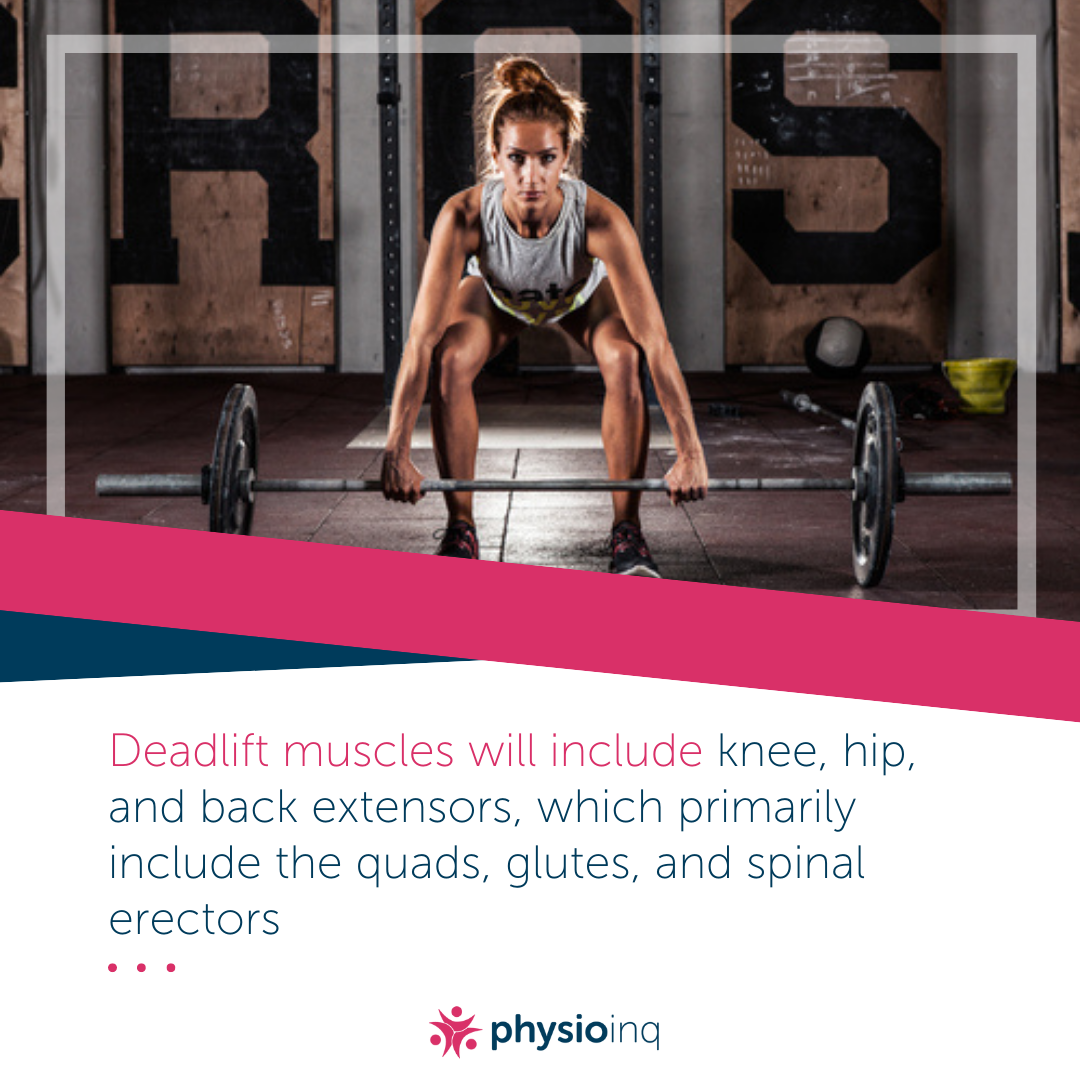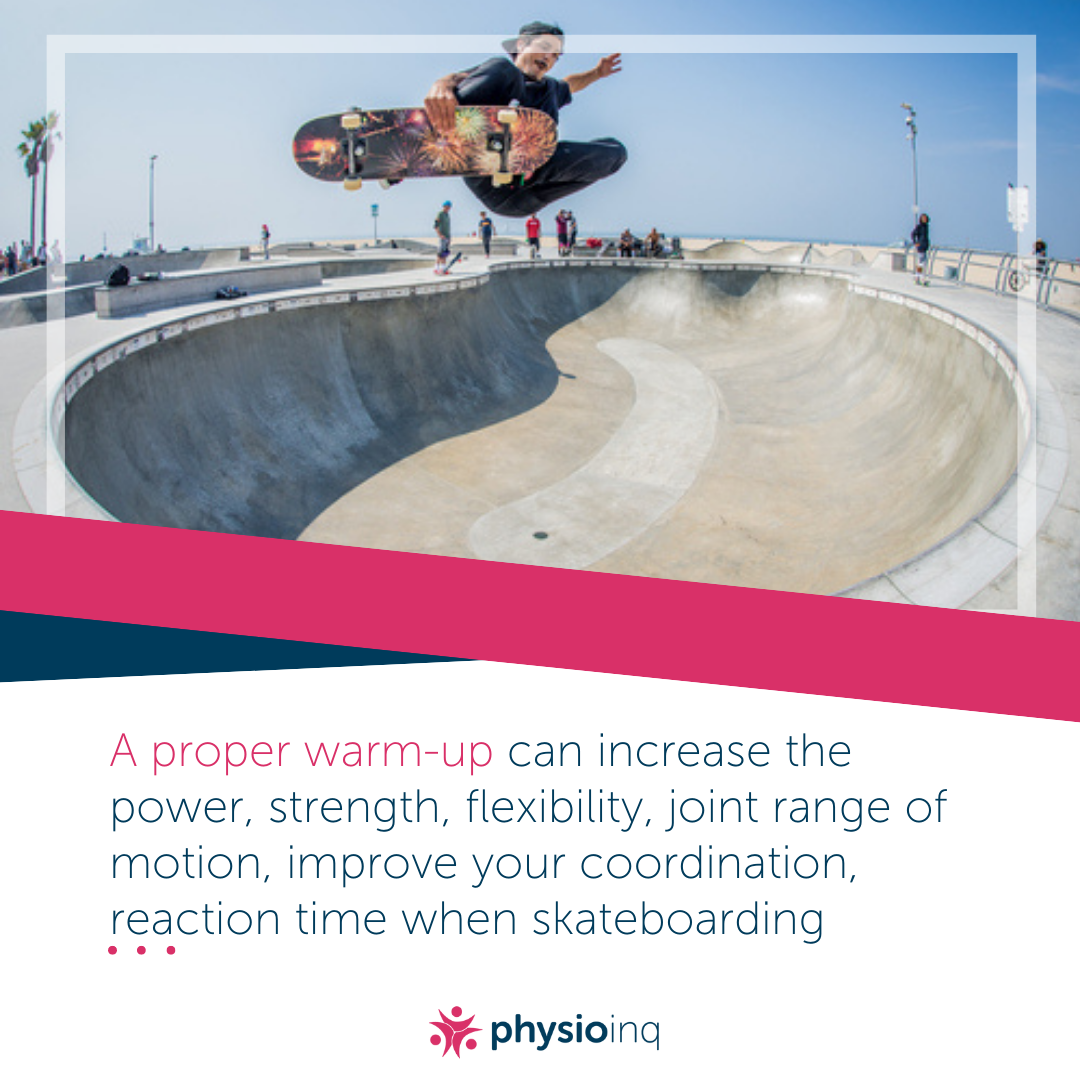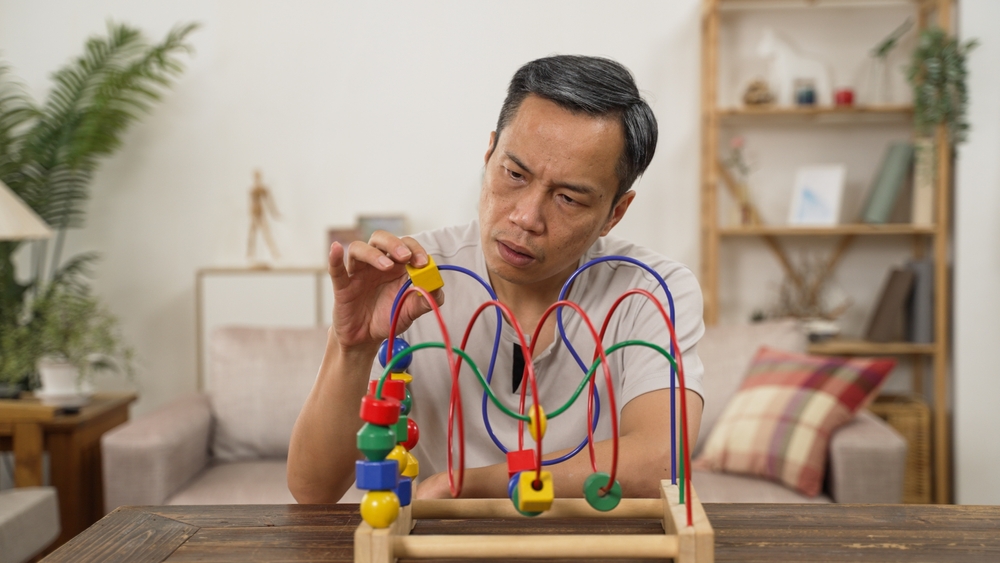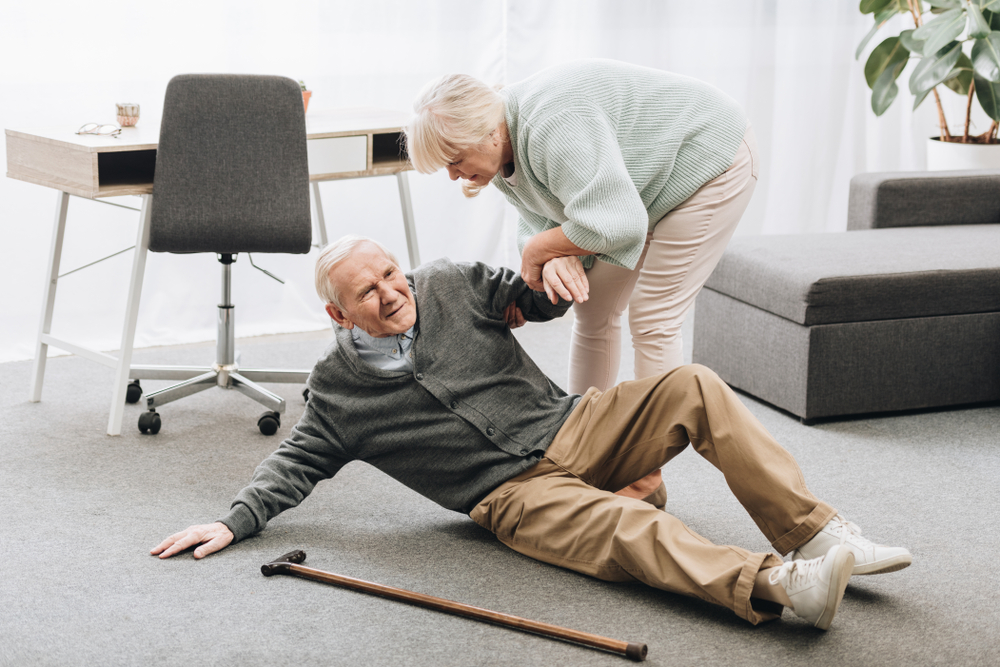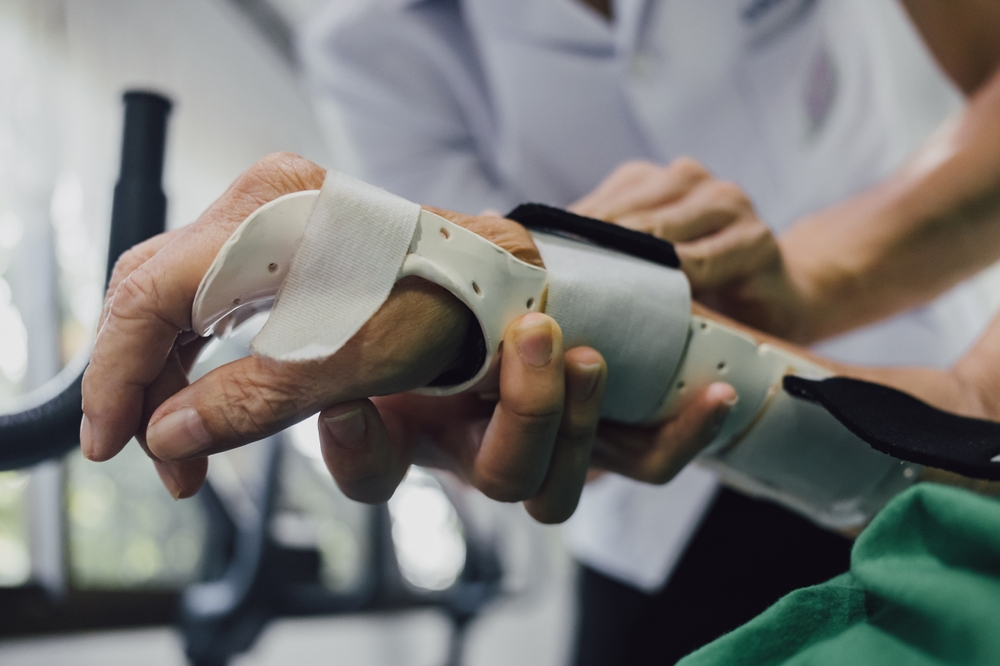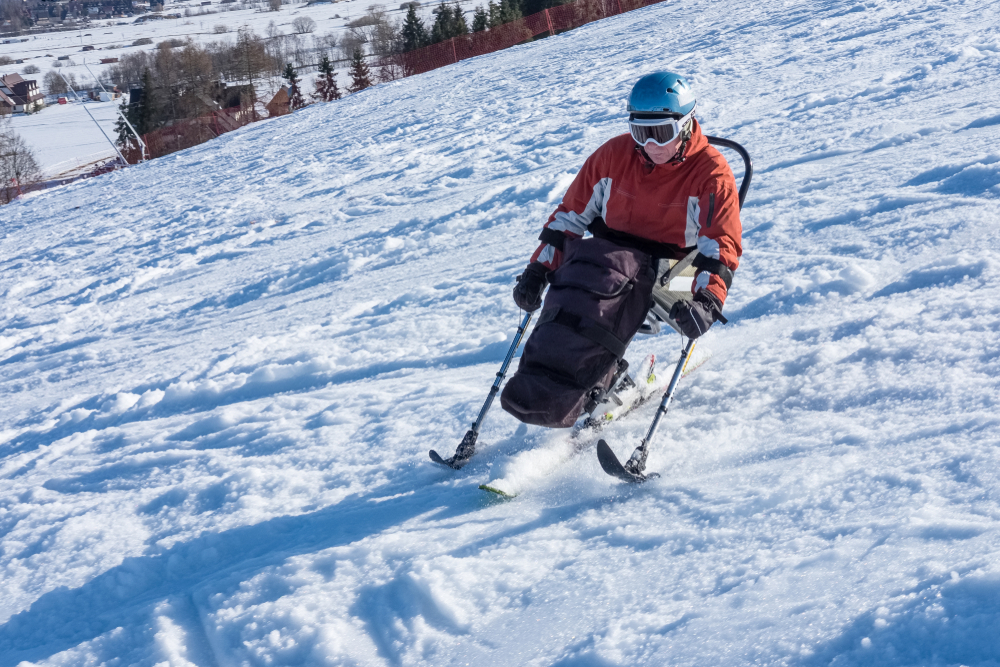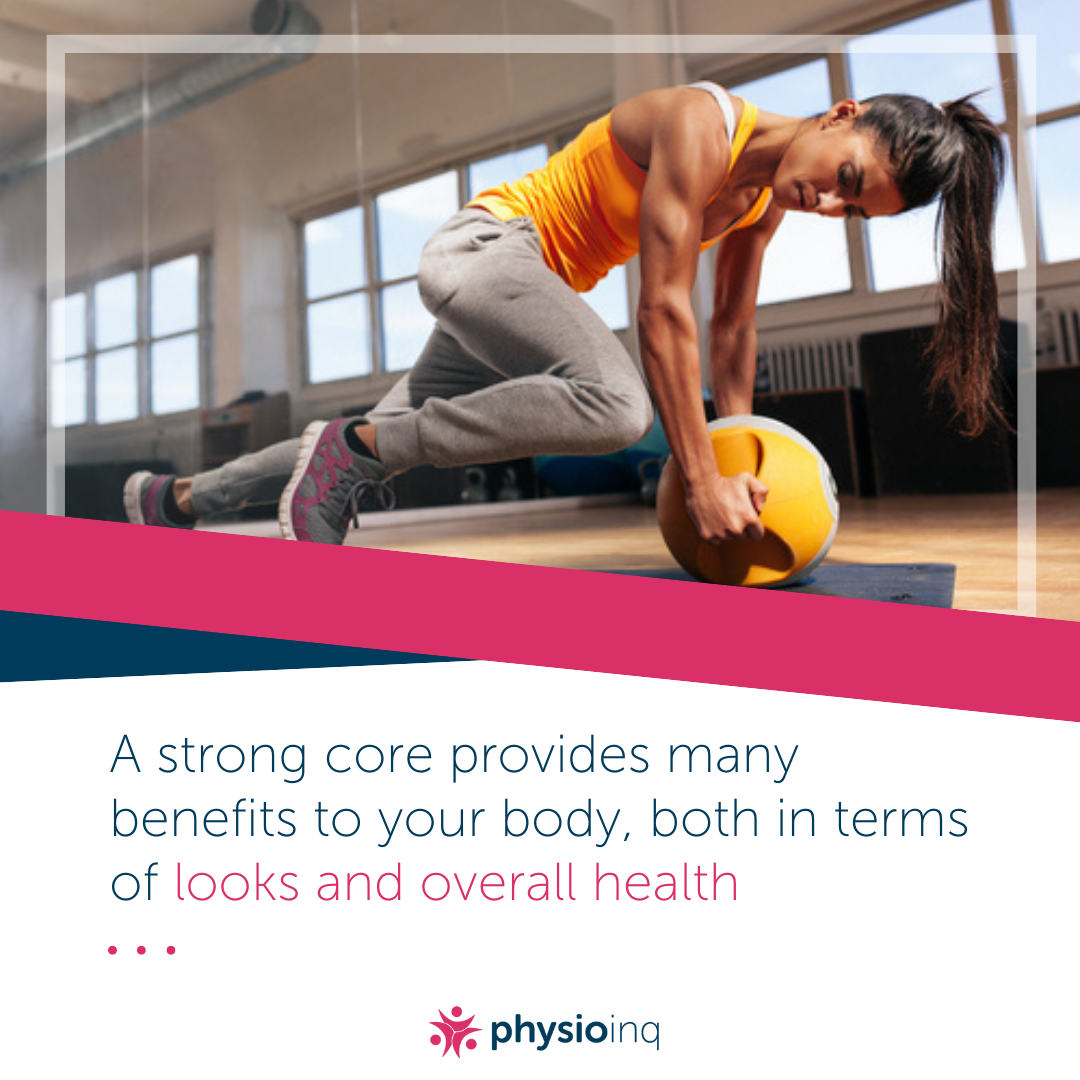Make an Appointment
If you’re reading this, it means that muscle cramps aren’t a rarity for you. And because we’re writing about it, we know how much pain they could be.
Muscle cramps have the potential to impact your performance and brings to light many questions. That’s why we’re going through the 101s of muscle cramps and answering some of the key questions such as; how to prevent muscle cramps, methods to stop muscles from cramping and how to relieve your muscles. Let’s get into it!
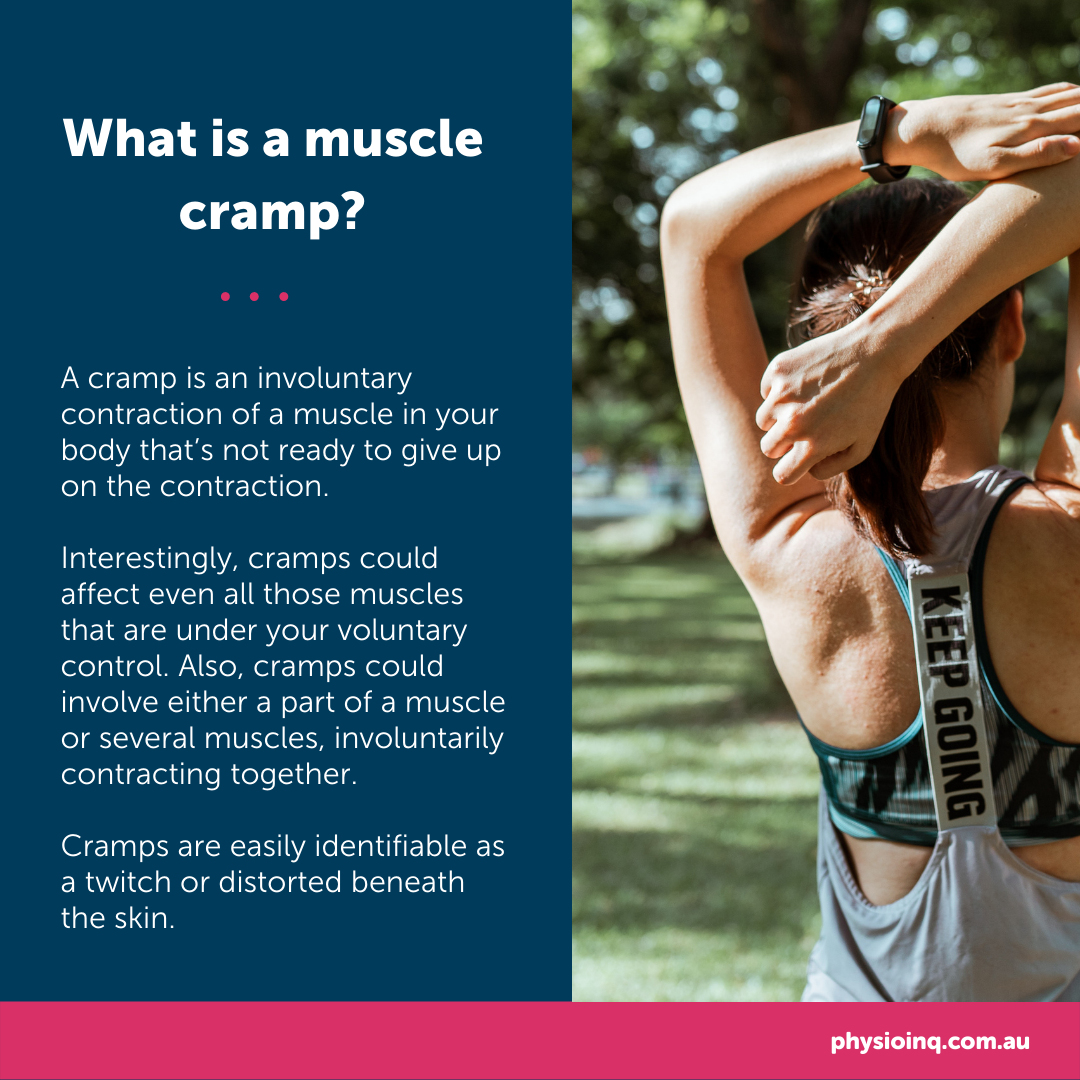
What is a muscle cramp?
A cramp is an involuntary contraction of a muscle in your body that’s not ready to give up on the contraction.
Interestingly, cramps could affect even all those muscles that are under your voluntary control. Also, cramps could involve either a part of a muscle or several muscles, involuntarily contracting together.
Cramps are easily identifiable as a twitch or distorted beneath the skin.
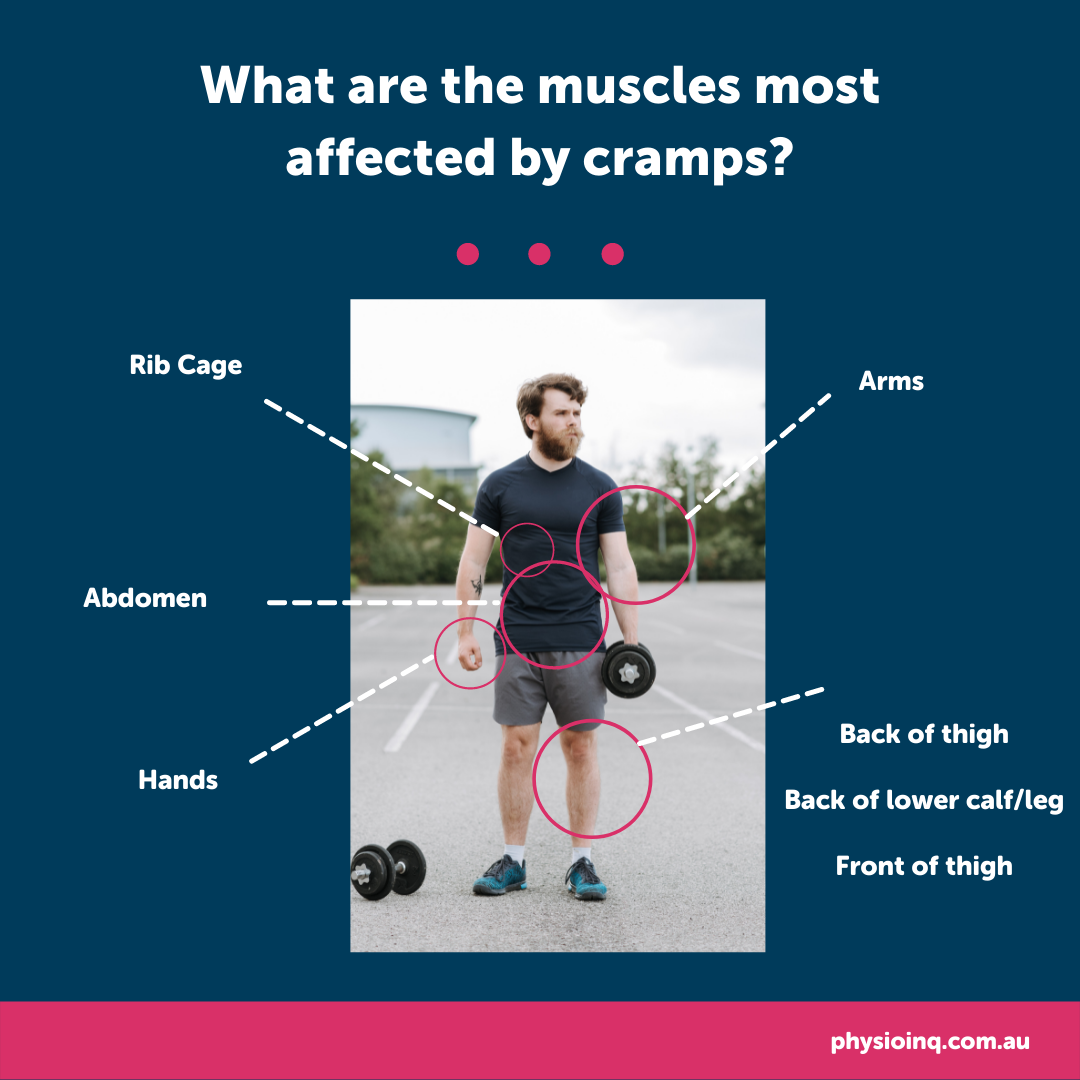
What Muscles Are Commonly Affected by Cramps?
The most common muscles that are the victims of cramps are:
- Back of thigh
- Back of lower calf/leg
- Front of thigh
In saying this, if you are engaging in exercise that engages your entire body (such as a gym workout), you could experience a cramp in any muscle of your body that you are exerting.
However, cramps in arms, hands, feet, abdomen and even along the rib cage are also quite common with many people. These cramps could range from a very slight spasm to an agonizing and prolonged muscle contraction.
How long does a cramp usually last?
A cramp normally lasts from a few seconds to as much as 15 minutes (or even longer).
What is interesting, is that it is common to experience a series of recurring cramps prior to the cramp fully relieving itself.
What are the reasons for cramps?
You might be shocked to find this out, but researchers haven’t been able to determine the exact reasons for muscle cramps!
While some researchers believe it’s due to muscle fatigue and inadequate stretching causing muscles to contract, the jury is still out on the exact cause.
Other factors that may be responsible for muscle cramps include dehydration, heat, and the depletion of salts in the body. For example, if you are exercising in hotter conditions, you may sweat more, and dehydration is more likely.
What are good ways to stop a muscle from cramping? Treatment options for muscle cramps
If you commonly deal with cramps, you might ask yourself questions like:
“What are good ways to stop a muscle from cramping” or “What is the cure for a muscle cramp?”. While there are no easy answers, a few ways to treat cramps include:
- Don’t proceed with the activity that triggered the cramp.
- Hold the muscle in a stretched position and wait for the cramp to stop. After that, gently massage the affected muscle.
- Add some heat to tight muscles and cold to tender muscles.
How do you prevent muscle cramps?
Even better than treating muscle cramps is how to prevent muscle cramps in legs, arms, feet, hands and all over the body.
While there is no one way solution to prevent muscle cramps, you could try the following prevention techniques:
- Stretching
- Eating the right foods
- Avoiding dehydration
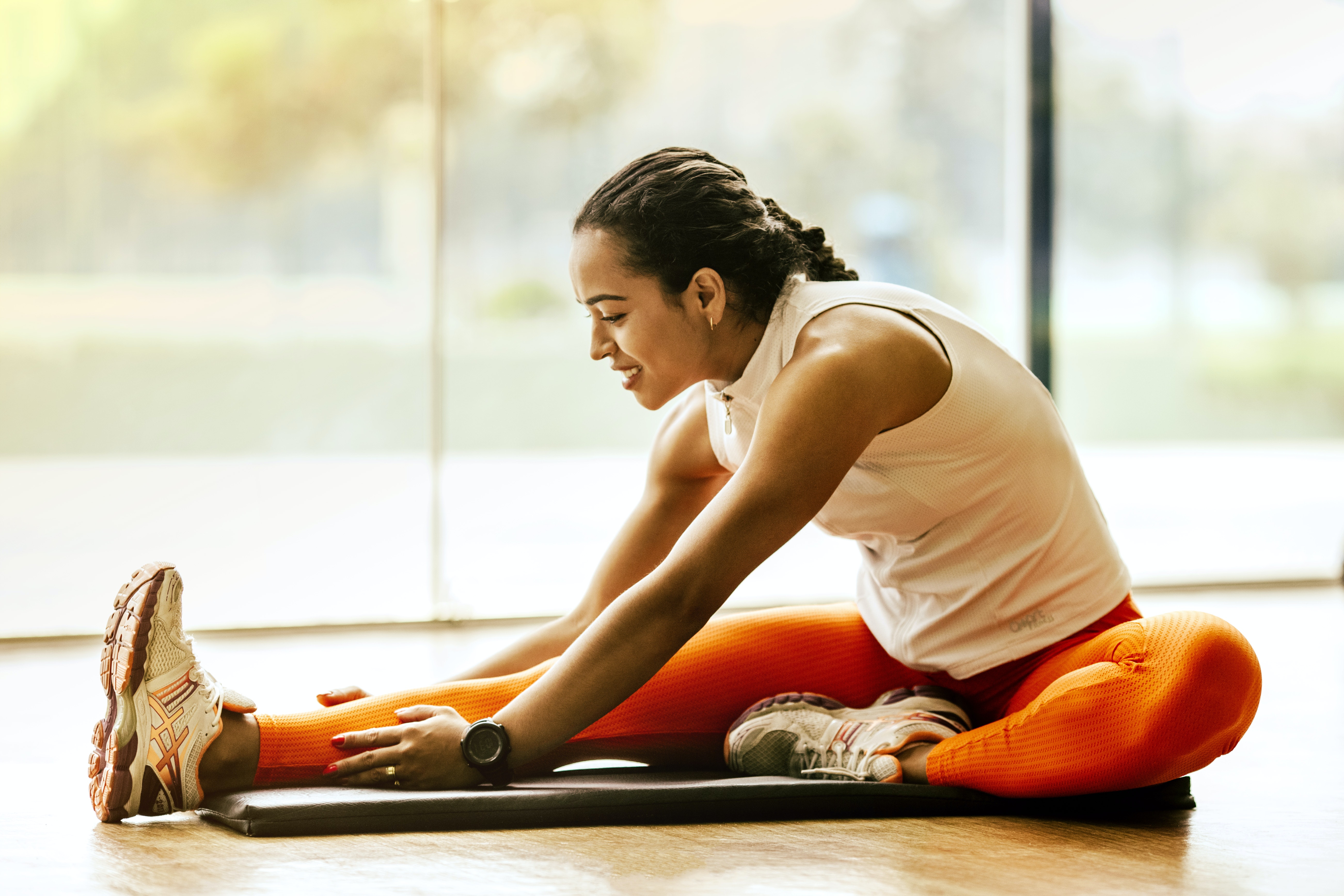
Stretching:
When the muscles in the body are stretched, they contract and expand within their comfort zone; the fibres in the muscles are thus expanded and warmed up for an intense and vigorous workout afterwards.
But if your body isn’t properly conditioned, it could lead to muscle fatigue, and inevitably to neural reflex activity. Overexertion is also responsible for the spasms as waste products build up in the muscles, leading to stiffness and cramps.
Need help with your stretching regimen? Looking for a few pointers to help prevent cramps through stretching and nutrition. Book an appointment with one of our expert physiotherapists who can help you deal with chronic muscle cramps and more. Contact us today on 1300 731 733 [PLEASE LINK TO A PHONE NUMBER] or make an online booking here.
Eat the right foods:
It might sound simple but eating certain foods that are high in electrolytes can help to prevent muscle cramps. Opt for foods that are high in hydration and electrolytes, such as bananas, sweet potatoes, milk or watermelon.
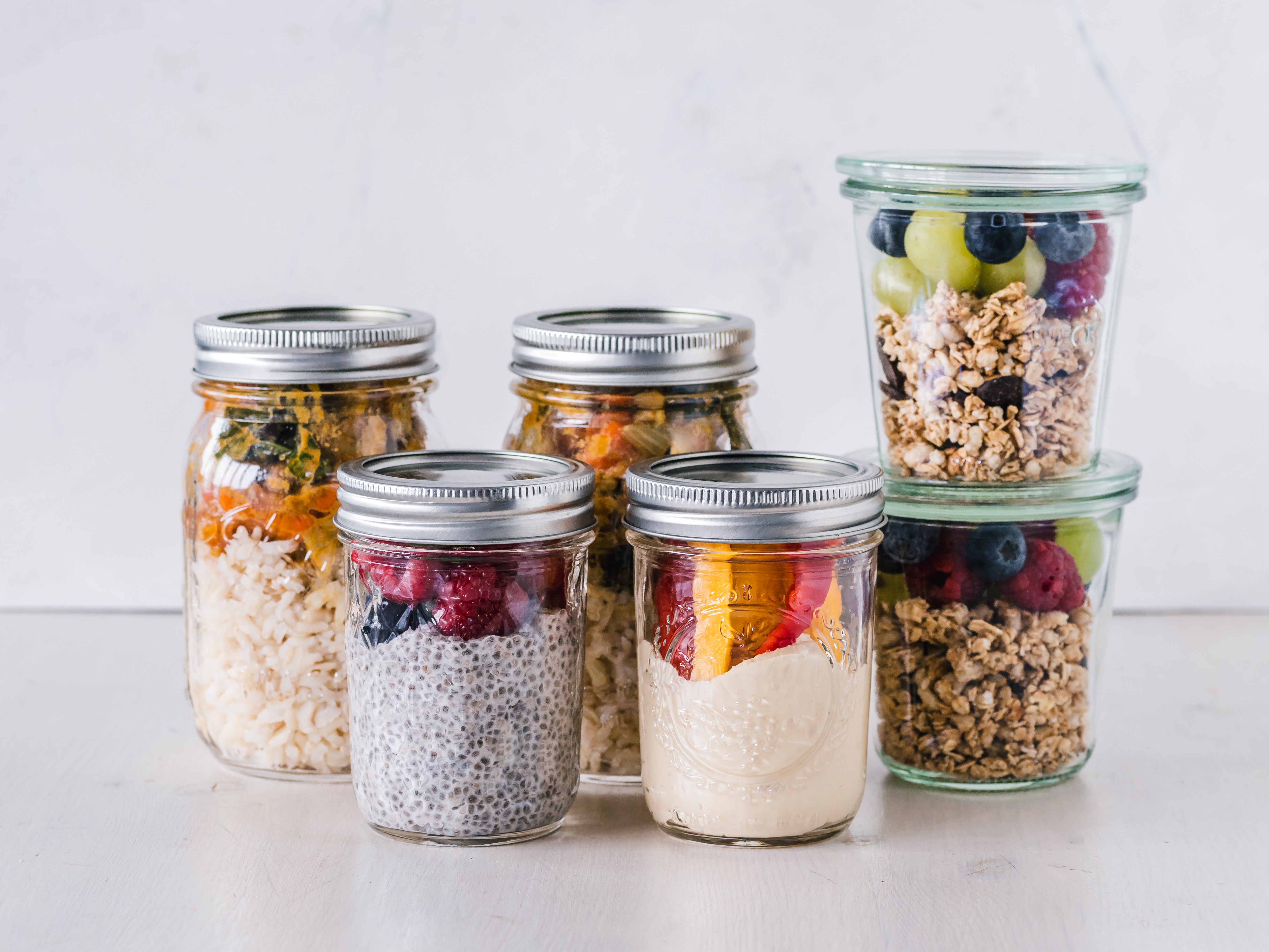
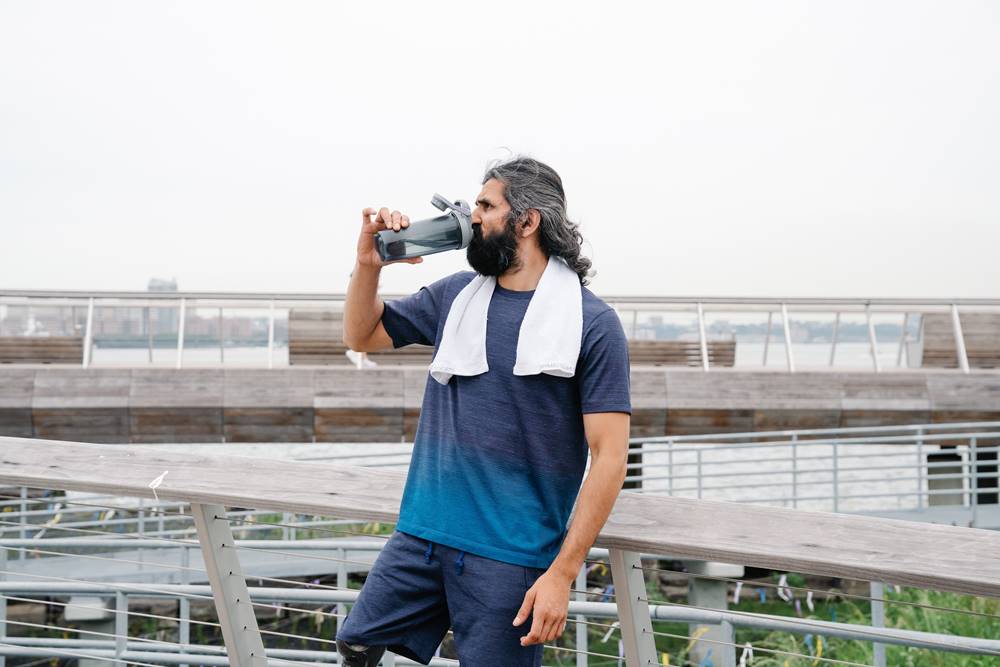
Avoiding Dehydration:
Especially for athletes and those who are extremely active, proper hydration and a stretching routine should not be overlooked. It may seem simple, but many people skip over these two tips time and time again.
What can I eat to prevent muscle cramps?
Since muscle cramps are often caused by dehydration, electrolyte imbalances and hormonal shifts, foods that are hydrating, have plenty of electrolytes and help to balance your hormones may help prevent muscle cramps.
These foods include:
- Bananas
- Sweet potatoes
- Avocados
- Watermelon
- Milk
- Salmon
In short, when it comes to what to eat for muscle cramps, in addition to drinking plenty of water, you can’t go wrong with foods high in calcium, magnesium and potassium.
Can low bloods sugar cause muscle cramps?
Simply put, yes. Low blood sugar can play a part in causing muscle cramps. However, it is likely to be only a factor. Other causes of muscle cramps could include, not stretching prior exercising, dehydration and general muscle fatigue.
Now that you’re equipped with this information, you’re ready to prevent and treat cramps when you experience them!
If you need additional help, you can book an appointment with one of our expert physiotherapists who can help you deal with chronic muscle cramps and more. Contact us today on 1300 731 733 [PLEASE LINK TO A PHONE NUMBER] or make an online booking here.
Our Mobile Physio offers community physiotherapy that’s convenient for Australians nationwide. When you book a mobile physio appointment, you’ll get the physiotherapy you need wherever you are and you’ll never cancel an appointment again!
Date Published: Monday, November 29, 2021
Locate a Mobile Physiotherapy
Service Near me
Get the experience & convinence you deserve to support your or a loved one's allied health needs.
Our Mobile Physiotherapy team are currently serving & taking appointments in the following states and regions in Australia:
New South Wales
- Blacktown
- Blue Mountains
- Campbelltown And Macarthur
- Canterbury-Bankstown
- Eastern Suburbs Sydney
- Georges River
- Hawkesbury
- Inner East Sydney
- Inner West Sydney
- Lake Macquarie
- Lower North Shore
- Newcastle
- Northern Beaches
- North Sydney
- Parramatta
- Penrith
- Southern Highlands
- South West Sydney
- Sutherland Shire
- Sydney CBD
- The Hills Shire
- Upper North Shore
- Waverley
- Wollongong
Tasmania
Victoria
Need to get into direct contact with ur Client Services team? We're all ears. Call our team directly on 1300 731 733


